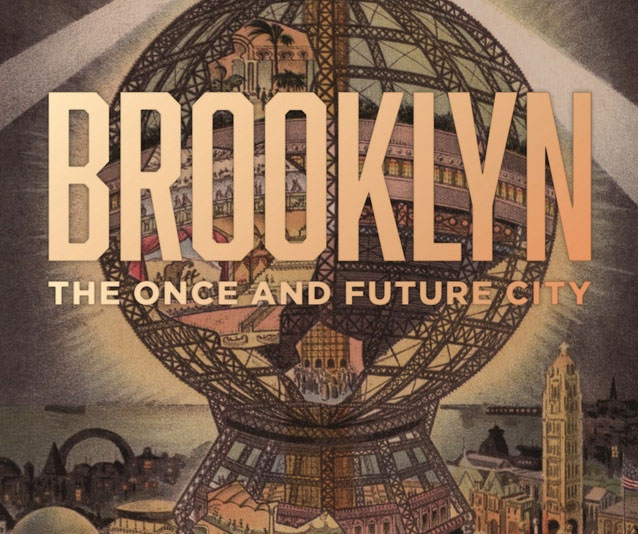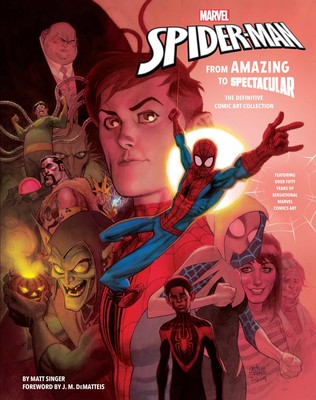
Just last week, Random House published Kurt Andersen’s latest novel, True Believers. The story, which shifts between the 1960s and the present, traces the mysterious past of Karen Hollander, an attorney who has been under consideration for Supreme Court appointment. Hollander, in the midst of writing a memoir, has stepped down from her appointment as she seeks to uncover mysterious details surrounding an incident that occurred in the 1960s.
Andersen has published bestselling novels Heyday and Turn of the Century, and has also authored a guest Op-Ed column for The New York Times and a column for The New Yorker. He also writes for television, film, and the stage.

Andersen, who lives in Brooklyn, is already receiving critical acclaim for True Believers, and you can catch him at BookCourt at 7pm on August 1 when he returns from his 8-city tour. BookCourt is located at 163 Court Street in Cobble Hill, Brooklyn. Andersen will also be appearing at the Brooklyn Book Festival on Sunday, September 23rd (further details to follow).
Q& A with Kurt Andersen on TRUE BELIEVERS
Originally published by Random House
• When people ask what genre of fiction TRUE BELIEVERS is, what do you say?
I guess it’s a few different kinds of books in one. It’s a thriller/mystery involving politics and national security. It’s a social novel, a kind of tragicomedy of manners about the way we live now and the way we lived in the 1960s. And it’s a love story…actually several love stories — a romantic first love, unexpected love later in life, love among young friends, love between parents and children.
• Much of TRUE BELIEVERS is set in the 1960s. What is it about that era that still resonates with people today?
For people who were alive and aware back then — that is, anyone over 50 — it was a once-in-a-lifetime period of crazy change that they’re unlikely to experience again. Whatever their version of the 60s was, it still resonates. But for everyone of every age, so much of the way we live now really got its start in that decade — independent and empowered women, skepticism of government and the Establishment, grownups dressing like kids, an African-American president, pop music, modern comedy, general laissez-faire tolerance, so much more. The wars of the last dozen years have all been waged in the shadow of Vietnam. And, on the downside, our politics are still weirdly stuck in the angry, divisive script written in the 60s. Also, the 60s are close enough to be part of living memory for a lot of people, but past enough to seem like a fascinatingly exotic foreign country.
• What challenges did you face in writing a female lead character? How much of yourself can be found in Karen Hollander?
I’d written major female characters in other novels. The bigger difference here was that she’s the narrator. It’s entirely her story. Since the lives of women have changed a lot more than the lives of men during the period of this novel, it seemed more interesting for the central character be a woman. As for writing her convincingly, living in a female household (wife, two daughters) and working with an entirely female publishing team (agent, two editors) was helpful. Karen is unlike me in most ways — and even though she’s only five years older than I am, those particular five years made a huge difference between her and my comings-of-age. The main things I share with her are a midwestern middle-class childhood, going to Harvard, and having Type 1 diabetes.
• TRUE BELIEVERS is a coming of age story in the sense that Karen is rediscovering her past, the peak of her young adulthood, while her granddaughter is forming her own political and personal beliefs. How does the novel reconcile the notion of being a strong, politically aware female in both the 1960s versus the modern day?
When she was a young woman in the 1960s, Karen went off the deep end politically. Her teenaged grand-daughter Waverly, as she gets involved in Occupy protests, is less likely to make the kind of colossal mistakes Karen made. And that’s partly, I think, because Waverly has learned the lessons of her grandmother’s generation. Like so many in her generation, she’s idealistic, but also sort of pre-disillusioned, which is a form of realism. And she feels regret that she missed the flux and excitement of the 60s. At one point she says to Karen, “protests now mostly seem like cover versions of old songs. Like we’re all in a sixties tribute band.”
• Ian Fleming’s James Bond novels play a significant role in TRUE BELIEVERS. Why did you choose to pay homage to Fleming? Is he influential to your writing?
Not influential at all: I had never read an Ian Fleming novel until I got the idea for this book. (I was surprised how good some of them were, and how different than the movies.) But James Bond as a figure so embodies a certain version of the early 1960s, the darker and cartoonier side of the Kennedy/Camelot idea. They are also very adolescent tales, and the novels reached their peak of cultural influence just as my characters were reaching adolescence.
• For over 40 years, Karen Hollander keeps a specific episode from young adulthood secret. Would a person be able to keep such a secret today? In what ways is it easier or more difficult to lead a double life in these modern times?
I don’t tend to be a believer in conspiracies because I think important secrets are very hard to keep secret. But yes, I think the same accidental confluence of lucky and unlucky factors that permitted Karen to keep her secret could happen today. It was in no one’s interest to let the truth come out, and only a handful of people knew the truth. It’s undoubtedly harder to live a double life in our tabloid/internet/YouTube age than it was in the 1960s, but she’s not so much living a double life as keeping a single large secret of her youth under wraps. And that happens all the time, even now.
• Did Baby Boomers “get away with” more as young adults than the Millennial generation? How so?
I think the distinguishing attribute of the Baby Boom generation is that so many of them (of us) had their cake and ate it too — had wild and crazily experimental “radical” youths but lived to tell the tale and grow up to lead prosperous, conventionally successful lives during a great economic boom time. Baby Boomers invented the idea of being forever young — of wearing jeans and sneakers and listing to rock-and-roll and smoking pot and generally behaving like teenagers at 30 and 40 and 50 and beyond, the idea of everyone having the opportunity to be a “bourgeois bohemian.” Subsequent generations, like the Millennials, have grown up as a result in a world where there were fewer strictures and less to rebel against — which means there’s not as much to “get away with.”


